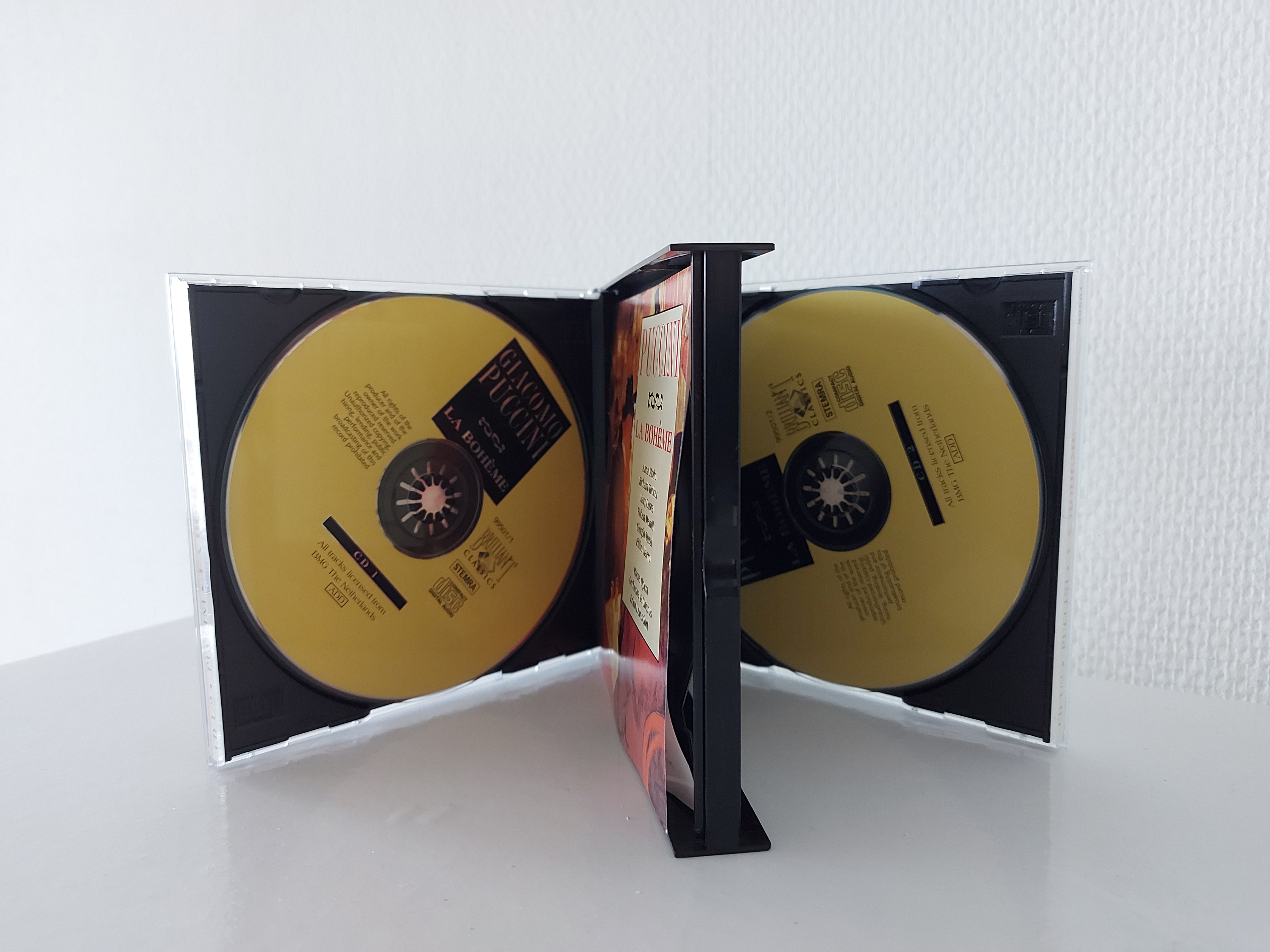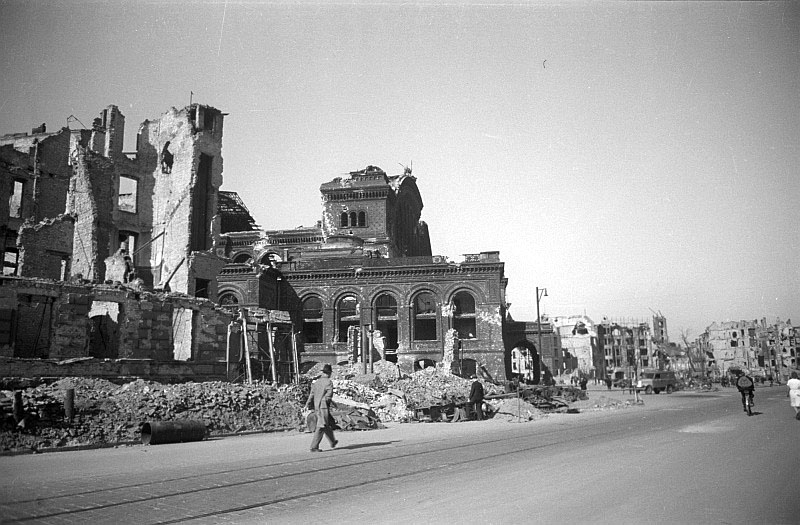|
Rauch-Haus-Song
The Rauch-Haus-Song is a track performed by West Berlin band Ton Steine Scherben on their second studio album Keine Macht für Niemand. It has become famous in leftwing circles in Germany. Background The double album Keine Macht für Niemand ('No power for no-one') was released in 1972 by Rock music, rock band Ton Steine Scherben. The track "Rauch-Haus-Song" describes the scenes when the police attempted to evict the squatted in December 1971. Members of the band were involved in the squat and were present when the police attacked. A derelict nurses' dormitory, part of the former hospital, had been occupied in early 1971. It was one of the first buildings to be squatted in Berlin. The squatters had renamed the building Georg-von-Rauch-Haus after Georg von Rauch, a leftist who was shot dead by the police on 5 December 1971. The police action was unsuccessful and the Georg-von-Rauch-Haus remains in existence almost fifty years later. Within the German squatter movement, the "Ra ... [...More Info...] [...Related Items...] OR: [Wikipedia] [Google] [Baidu] |
Ton Steine Scherben
Ton Steine Scherben () was one of the first and most influential German language rock bands of the 1970s and early 1980s. Well known for the highly political and emotional lyrics of vocalist Rio Reiser, they became a musical mouthpiece of new left movements, such as the squatting movement, during that time in Germany and their hometown of West Berlin in particular. Today, after the band's demise in 1985, and the death of Rio Reiser in 1996, Ton Steine Scherben have retained a cult following and popularity in the related scenes. Recently, some of the remaining members have given reunion concerts. Etymology Ton Steine Scherben's literal English translation is "Clay Stones Shards"; in German, "Ton" can mean "sound" as well, so the band's name may be considered to be an amphibology. Singer Rio Reiser usually told journalists the name was taken from a description by pioneer archeologist Heinrich Schliemann of what he saw when he first came to the site of ancient Troy. Other ... [...More Info...] [...Related Items...] OR: [Wikipedia] [Google] [Baidu] |
Keine Macht Für Niemand
''Keine Macht für Niemand'' (“No power for nobody”) is the name of both the second album and best-known song by the German rock band Ton Steine Scherben. The double album, released in 1972, is also sometimes called “die Weiße” (“the white one”) in reference to its simple cover with a white background and black text. The album as a whole, as well as the song ''Keine Macht für Niemand'' heavily criticised social and political ills. The lyrics call for resistance against the extant system. In ''Die letzte Schlacht gewinnen wir'' (“We will win the final battle”), the demand for a replacement of the present capitalist system is very clear. The phrase “No power for nobody” is a sloganised interpretation of anarchy. When the album was released, Rio Reiser and had still yet to adopt their stage names. Use as a slogan According to Rio Reiser, the phrase came from an anarchist publication called ''Germania''. Similarly, the song '' Macht kaputt, was euch kap ... [...More Info...] [...Related Items...] OR: [Wikipedia] [Google] [Baidu] |
Georg Von Rauch
Georg von Rauch (1947–1971) was a radical activist in West Berlin at the end of the 1960s German student movement. See also * West Berlin Tupamaros * Movement 2 June * Rauch-Haus-Song The Rauch-Haus-Song is a track performed by West Berlin band Ton Steine Scherben on their second studio album Keine Macht für Niemand. It has become famous in leftwing circles in Germany. Background The double album Keine Macht für Niemand ( ... * * References * Ingrid Gilcher-Holtey, ''A Revolution of Perception ? Consequences and Echoes of 1968'', Berghahn Books, 2014p. 79 1947 births 1971 deaths People from Marburg People of Baltic German descent German anarchists Sozialistischer Deutscher Studentenbund members Members of the 2 June Movement Deaths by firearm in Germany {{Anarchist-stub ... [...More Info...] [...Related Items...] OR: [Wikipedia] [Google] [Baidu] |
Rauch Haus
Rauch (meaning "smoke" or "fume" in German, perhaps an occupational name for a blacksmith or charcoal burner) may refer to: Places * Rauch, Buenos Aires, the ''cabecera'' (district capital) of Rauch ''partido'' * Rauch Partido, a ''partido'' (department) in Buenos Aires Province, Argentina * Rauch, Minnesota, an unincorporated community in northern Minnesota, United States Other * Rauch (company), an Austrian company that produces iced tea, juices and sports drinks * Rauch (crater), a crater on Mars named after the Argentine ''partido'' * "Rauch", a song from the album ''In Silence We Yearn'' by Oh Hiroshima People with the surname * Adolf von Rauch (born 1798) (1798–1882), German paper manufacturer * Adolf von Rauch (born 1805)(1805–1877), German cavalry officer, chamberlain and court-marshal to Princess Louise of Prussia, and chairman of the Numismatic Society in Berlin * Albert von Rauch (1829–1901), German general of the infantry *Alfred de Rauch (1887–1985), Fre ... [...More Info...] [...Related Items...] OR: [Wikipedia] [Google] [Baidu] |
West Berlin
West Berlin (german: Berlin (West) or , ) was a political enclave which comprised the western part of Berlin during the years of the Cold War. Although West Berlin was de jure not part of West Germany, lacked any sovereignty, and was under military occupation until German reunification in 1990, the territory was claimed by the Federal Republic of Germany (FRG) which was heavily disputed by the Soviet Union and other Eastern Bloc countries. However, West Berlin de facto aligned itself politically with the FRG on 23 May 1949, was directly or indirectly represented in its federal institutions, and most of its residents were citizens of the FRG. West Berlin was formally controlled by the Western Allies and entirely surrounded by the Soviet-controlled East Berlin and East Germany. West Berlin had great symbolic significance during the Cold War, as it was widely considered by westerners an "island of freedom" and America's most loyal counterpart in Europe. It was heavily subsidi ... [...More Info...] [...Related Items...] OR: [Wikipedia] [Google] [Baidu] |
Double Album
A double album (or double record) is an audio album that spans two units of the primary medium in which it is sold, typically either records or compact disc. A double album is usually, though not always, released as such because the recording is longer than the capacity of the medium. Recording artists often think of double albums as being a single piece artistically; however, there are exceptions such as John Lennon's '' Some Time in New York City'' (which consisted of one studio record and one live album packaged together) and OutKast's ''Speakerboxxx/The Love Below'' (effectively two solo albums, one by each member of the duo). Since the advent of the compact disc, albums are sometimes released with a bonus disc featuring additional material as a supplement to the main album, with live tracks, studio out-takes, cut songs, or older unreleased material. One innovation was the inclusion of a DVD of related material with a compact disc, such as video related to the album or DVD ... [...More Info...] [...Related Items...] OR: [Wikipedia] [Google] [Baidu] |
Rock Music
Rock music is a broad genre of popular music that originated as "rock and roll" in the United States in the late 1940s and early 1950s, developing into a range of different styles in the mid-1960s and later, particularly in the United States and United Kingdom.W. E. Studwell and D. F. Lonergan, ''The Classic Rock and Roll Reader: Rock Music from its Beginnings to the mid-1970s'' (Abingdon: Routledge, 1999), p.xi It has its roots in 1940s and 1950s rock and roll, a style that drew directly from the blues and rhythm and blues genres of African-American music and from country music. Rock also drew strongly from a number of other genres such as electric blues and folk music, folk, and incorporated influences from jazz, classical, and other musical styles. For instrumentation, rock has centered on the electric guitar, usually as part of a rock group with electric bass guitar, drums, and one or more singers. Usually, rock is song-based music with a Time signature, time signature using ... [...More Info...] [...Related Items...] OR: [Wikipedia] [Google] [Baidu] |
Refrain
A refrain (from Vulgar Latin ''refringere'', "to repeat", and later from Old French ''refraindre'') is the line or lines that are repeated in music or in poetry — the "chorus" of a song. Poetic fixed forms that feature refrains include the villanelle, the virelay, and the sestina. In popular music, the refrain or chorus may contrast with the verse melodically, rhythmically, and harmonically; it may assume a higher level of dynamics and activity, often with added instrumentation. Chorus form, or strophic form, is a sectional and/or additive way of structuring a piece of music based on the repetition of one formal section or block played repeatedly. Usage in history In music, a refrain has two parts: the lyrics of the song, and the melody. Sometimes refrains vary their words slightly when repeated; recognizability is given to the refrain by the fact that it is always sung to the same tune, and the rhymes, if present, are preserved despite the variations of the words. Su ... [...More Info...] [...Related Items...] OR: [Wikipedia] [Google] [Baidu] |
Berlin-Kreuzberg
Kreuzberg () is a district of Berlin, Germany. It is part of the Friedrichshain-Kreuzberg borough located south of Mitte. During the Cold War era, it was one of the poorest areas of West Berlin, but since German reunification in 1990 it has become more gentrified and known for its arts scene. The borough is known for its large percentage of immigrants and descendants of immigrants, many of whom are of Turkish ancestry. As of 2006, 31.6% of Kreuzberg's inhabitants did not have German citizenship. Kreuzberg is noted for its diverse cultural life and experimental alternative lifestyles, and is an attractive area for many, however, some parts of the district are still characterized by higher levels of unemployment. The counterculture tradition of Kreuzberg led to a plurality of votes for the Green Party, which is unique among all Berlin boroughs. Geography Layout Kreuzberg is bounded by the river Spree in the east. The Landwehrkanal flows through Kreuzberg from east to west ... [...More Info...] [...Related Items...] OR: [Wikipedia] [Google] [Baidu] |
Anarchist Movements
Anarchism is a political philosophy and movement that is skeptical of all justifications for authority and seeks to abolish the institutions it claims maintain unnecessary coercion and hierarchy, typically including, though not necessarily limited to, governments, nation states, and capitalism. Anarchism advocates for the replacement of the state with stateless societies or other forms of free associations. As a historically left-wing movement, usually placed on the farthest left of the political spectrum, it is usually described alongside communalism and libertarian Marxism as the libertarian wing (libertarian socialism) of the socialist movement. Humans lived in societies without formal hierarchies long before the establishment of formal states, realms, or empires. With the rise of organised hierarchical bodies, scepticism toward authority also rose. Although traces of anarchist thought are found throughout history, modern anarchism emerged from the Enlightenment. ... [...More Info...] [...Related Items...] OR: [Wikipedia] [Google] [Baidu] |

.jpg)
.png)



